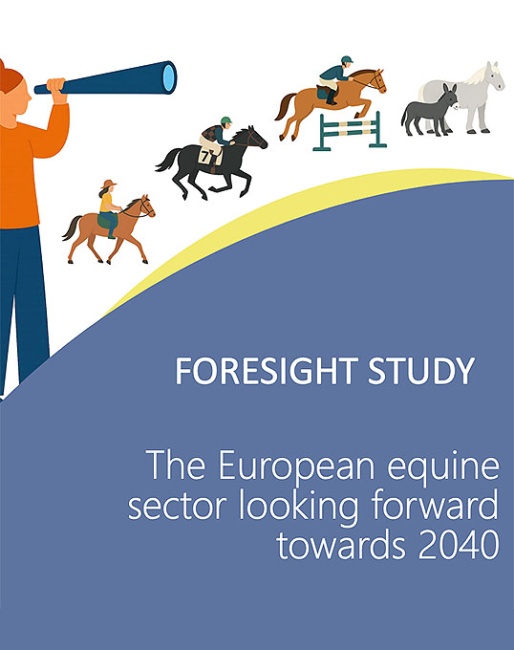
The European Horse Network (EHN), of which the FEI is a member, has developed a foresight study looking ahead to 2040.
It outlines four future scenarios focusing on the sustainability and social acceptance of equine activities.
Introduction
In 2040, the future of horses in Europe is taking shape at the crossroads of major ecological, economic and societal disruption. In the face of evolving societal expectations regarding animal welfare, the challenges of climate change, the rise of technology, land use pressures and economic challenges affecting the sector, equine activities will need to address a wide range of complex issues. In such a multifaced and uncertain context, how can we ensure a lasting and recognized role for horses in the society of tomorrow?
This study aims to support the resilience and relevance of the horse sector in Europe, promoting research, welfare, and informed policy engagement. Based on these scenarios, the EHN has developed an action plan for the coming years, which includes tools, research initiatives, and targeted communications.
Executive Summary
To create a robust strategy for ensuring that horses remain a key part of the European landscape in the years to come, the European Horse Network (EHN) promoted a co-creative process to generate scenarios of the future. Note, scenarios are not predictions, or expressions of desired futures. They are thought experiments that position how the future may plausibly develop, and how it would then impact all dimensions of the horse industry. They have then been used to create a strategy for EHN that will survive regardless of what actually then does happen. In our case, four scenarios were created around two axes: sustainability and the social acceptability of equine activities:
- A new place for horses in society – Horses are well integrated in the countryside alongside of innovative agriculture – A pragmatic use of research and a strong implementation of welfare practices ensure the industry has a full license to operate.
- Horses must fight for their status – The transition to a low carbon economy and climate changes impact food production which becomes the priority to the detriment of horses.
- The Horse comes last – The industry faces strong criticism, costs to keep horses are increasing, transport possibilities extremely restricted.
- Horses for the Happy Few – The industry is being managed by the wealthy categories and is marginalized. It is a very expensive leisure for only a small part of the population and highly criticized by the others.
The scenarios were built on similar exercises conducted in France, the Netherlands and an EHN Workshop organized in June 2023. These are extreme but possible futures. Each elaborated scenario comes with specific opportunities, risks and options. Based on these scenarios, the EHN has carefully built its action plan for the coming years where specific tools will be developed, new research supported and a strong and specific communication expanded. EHN wishes to play an important role in creating a sustainable horse world where horses, humans and the environment are all cared for.